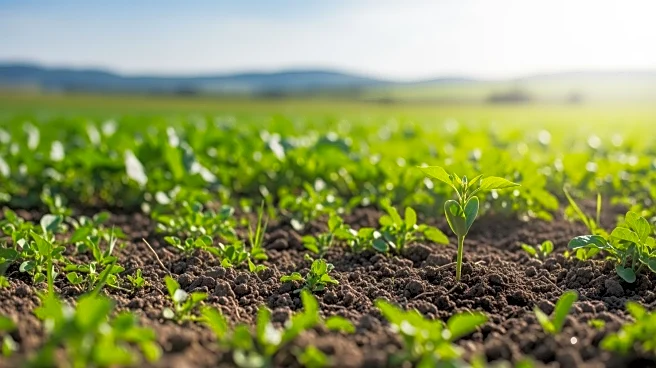What's Happening?
Cargill is expanding its investments in regenerative agriculture across 16 countries, as detailed in its latest annual report. The company is partnering with Mars, Inc. to help farmers in Poland receive
payments for carbon sequestered through regenerative practices, aiming to improve soil health on over 4,500 hectares by 2026. Cargill is also investing in renewable biofuels and has acquired Brazilian agriculture company SJC Bioenergia to expand its renewable energy footprint. Additionally, Cargill is piloting programs with farmers in Minnesota, South Dakota, and North Dakota to grow camelina, a crop that supports soil health and can be refined into renewable fuels.
Why It's Important?
Cargill's expansion into regenerative agriculture highlights the growing importance of sustainable farming practices in addressing climate change and improving agricultural resilience. By supporting carbon sequestration and soil health, Cargill is contributing to the reduction of greenhouse gas emissions and promoting environmental sustainability. These initiatives also provide financial incentives for farmers, enhancing their livelihoods and encouraging the adoption of regenerative practices. Cargill's investments in renewable biofuels further demonstrate its commitment to reducing supply chain emissions and supporting the transition to a low-carbon economy.
What's Next?
Cargill's continued focus on regenerative agriculture and renewable energy is likely to drive further innovation and collaboration in the agricultural sector. The company's partnerships and pilot programs may serve as models for other corporations seeking to enhance sustainability in their supply chains. As Cargill expands its initiatives, it may explore additional opportunities to integrate regenerative practices into its global operations, potentially influencing industry standards and encouraging widespread adoption of sustainable agriculture.










